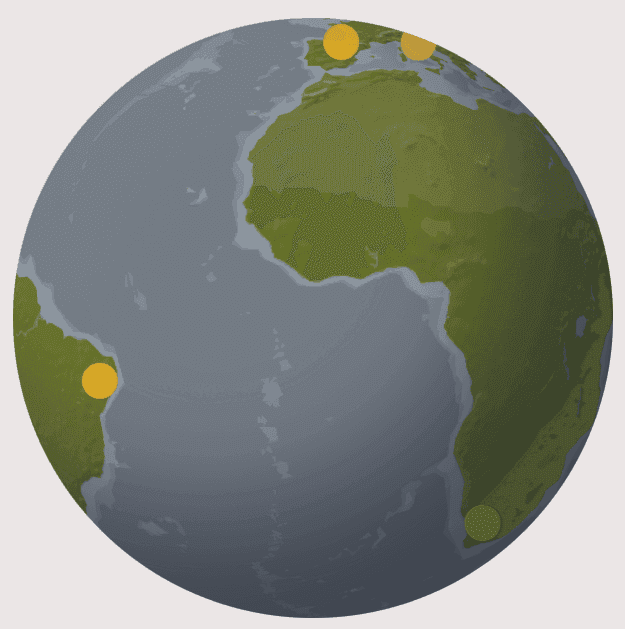If you’re using Climate TRACE data for an emissions reduction project, policy, or research paper, we’d love to know more! We occasionally feature highly impactful projects on our website and in our newsletter. Please contact us.
Case Study: The States and Regions Remote Sensing Project (STARRS)
The States and Regions Remote Sensing Project (STARRS) illustrates the value of collaboration in generating independent greenhouse gas emissions data.

Did You Know?
Research by Climate Group, as Secretariat to the Under2 Coalition, shows that states and regions with a recent inventory of emissions data are more likely to set emissions reduction targets.
What’s more, having access to a detailed breakdown of region-wide greenhouse gas emissions allows states and regions to identify their highest-emitting sectors and design and implement targeted mitigation strategies.

Our Approach
STARRS brings together Climate TRACE, Climate Group, and six states around the world to develop detailed, up-to-date, regional emissions data.
All of the states participating in this project previously had access to varying levels of emissions data, but many reported that it was difficult to source and generate their own inventories. As a result, their data were incomplete and often only updated every few years.
Climate TRACE is able to fill in these gaps and generate independent emissions estimates that don’t primarily rely on self-reported data. Climate TRACE pairs satellite and remote sensing data with artificial intelligence to identify emitting activities and calculate greenhouse gas emissions.
Through the STARRS collaboration, six regional governments shared data and provided feedback to improve the accuracy and relevance of Climate TRACE data.
About the Data
Climate TRACE’s technologically-advanced approach offers an independent look at emissions, providing states and regions with both complementary and new information to support their monitoring efforts.
Climate TRACE also aims to provide emissions data updates on an annual basis going forward.
To help our partners act decisively, we go beyond emissions estimates by sector or industry and break down aggregated data to detect emissions from individual sources such as power plants and oil fields. With this information, regional governments can take data-informed actions such as incentivizing efficiency improvements by major emitters, or introducing measures to help farmers switch to regenerative farming practices.
Review our methodology to learn more about how Climate TRACE estimates emissions and how it's different from the states' methodologies.
Latest Projects
Abruzzo Italy
Located in central Italy, the Abruzzo region’s main economic activities are manufacturing and agriculture. Abruzzo’s last emissions inventory dates back to 2012. Climate TRACE provided updated data covering emissions from 2015 to 2021 for major sectors.
The pandemic effect on emissions: In Abruzzo, cement production decreased in 2020 due to the COVID-19 pandemic, but it rebounded significantly in 2021. Emissions reduction gains due to the pandemic were found to be only temporary.
Basque Country Spain
Jalisco Mexico
Pernambuco Brazil
Querétaro Mexico
Western Cape South Africa
Work with us
Use timely and granular emissions data and insights to inform your work to create emissions reduction plans and policies.
While our ultimate goal is to create emissions inventories for every state around the world, we prioritize projects based on opportunities for direct collaboration. If you’re interested in partnering, please contact us.
Climate Group through its role as Secretariat of the Under2 Coalition, brings together states, regions, provinces and other subnational governments committed to achieving net zero emissions by 2050 at the latest. Find out why states and regions are so important for climate action: https://www.theclimategroup.org/under2-coalition.